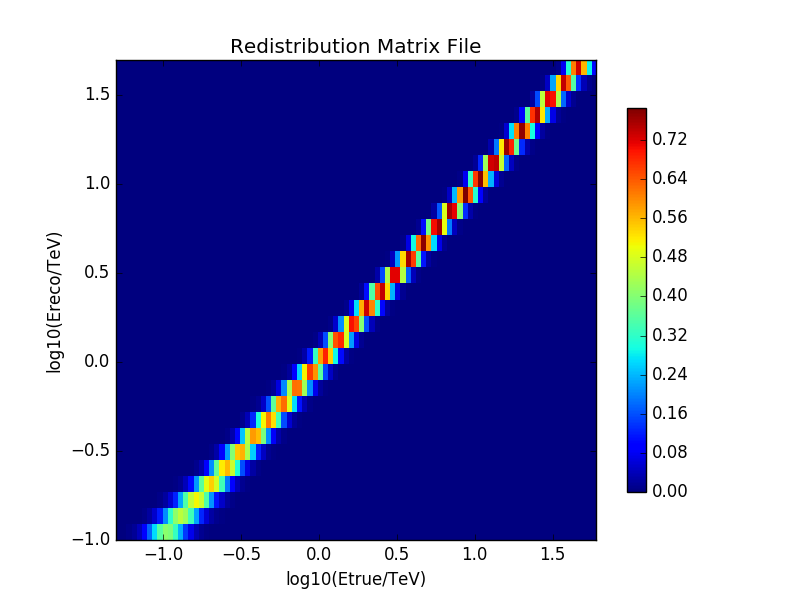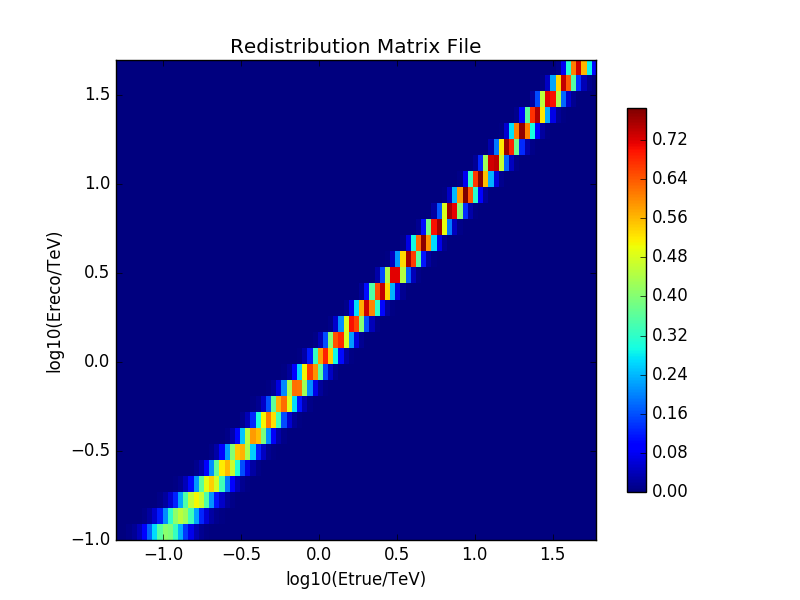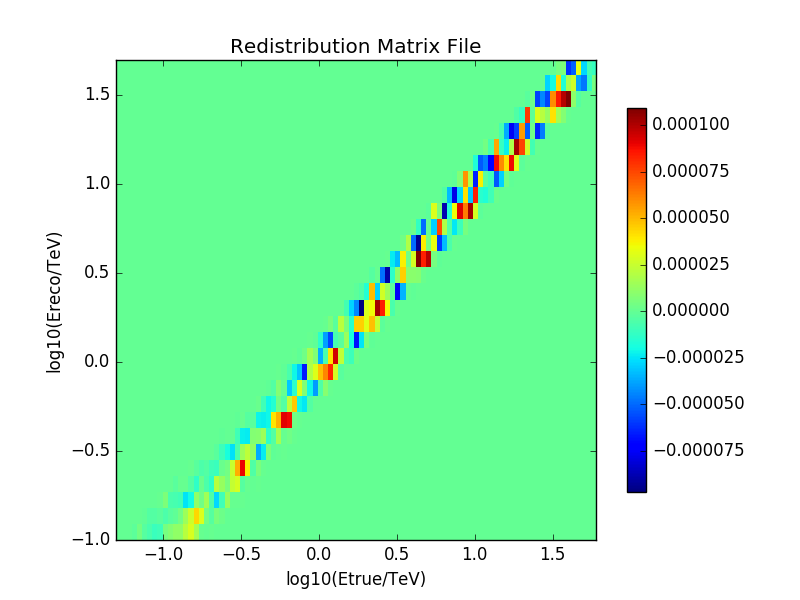Action #2422
Add energy integration methods to GCTAEdisp
| Status: | Closed | Start date: | 03/28/2018 | |
|---|---|---|---|---|
| Priority: | Normal | Due date: | ||
| Assigned To: | % Done: | 100% | ||
| Category: | - | |||
| Target version: | 1.6.0 | |||
| Duration: |
Description
Energy integration methods
double prob_etruebin(GEnergy etrue_min, GEnergy etrue_max, GEnergy ereco, double theta); double prob_erecobin(GEnergy ereco_min, GEnergy ereco_max, GEnergy etrue, double theta);should be added to
GCTAEdisp that integrate the energy dispersion information over a bin in true or reconstructed energy. The prob_erecobin method can then be used in GCTAOnOffObservation::compute_rmf() to speed up the computations of csphagen.
Recurrence
No recurrence.
History
#1
 Updated by Knödlseder Jürgen almost 7 years ago
Updated by Knödlseder Jürgen almost 7 years ago
- Status changed from New to In Progress
To have a reference, here a test run on the DC-1 data and Cas A:
$ csobsselect Input event list or observation definition XML file [obs.xml] $CTADATA/obs/obs_gps_baseline.xml Pointing selection region shape (CIRCLE|BOX) [CIRCLE] Coordinate system (CEL - celestial, GAL - galactic) (CEL|GAL) [CEL] Right Ascension of selection centre (deg) (0-360) [83.63] 350.8524 Declination of selection centre (deg) (-90-90) [22.01] 58.8159 Radius of selection circle (deg) (0-180) [5.0] 5.0 Start time (UTC string, JD, MJD or MET in seconds) [NONE] Output observation definition XML file [outobs.xml] obs.xml $ csphagen Input event list or observation definition XML file [obs.xml] Algorithm for defining energy bins (FILE|LIN|LOG) [LOG] Start value for first energy bin in TeV [0.1] Stop value for last energy bin in TeV [100.0] 50.0 Number of energy bins [120] 30 Stack multiple observations into single PHA, ARF and RMF files? [no] yes Output observation definition XML file [onoff_obs.xml] Method for background estimation (REFLECTED|CUSTOM) [REFLECTED] Coordinate system (CEL - celestial, GAL - galactic) (CEL|GAL) [CEL] Right Ascension of source region centre (deg) (0-360) [83.63] 350.8524 Declination of source region centre (deg) (-90-90) [22.01] 58.8159 Radius of source region circle (deg) (0-180) [0.2]It took 1231.67 second of CPU time to execute.
Removing the computation of the RMF, the execution time reduced to 223.4 seconds. This illustrates the potential of replacing the numerical integration by the integration methods in csphagen.
#2
 Updated by Knödlseder Jürgen almost 7 years ago
Updated by Knödlseder Jürgen almost 7 years ago
- File onoff_stacked_rmf_reference.png added
- File onoff_stacked_rmf_anaint.png added
- File onoff_stacked_rmf_anaint-reference.png added
- % Done changed from 0 to 50
I implemented the prob_erecobin() method for the GCTAEdisp2D class. The execution of the csphagen script now takes 403 second, hence a factor of 3 increase in computation speed.
The resulting RMF matrix is compared below to the one obtained for the numerical integration. The left panel shows the RMF matrix obtained with numerical integration, the mid panel the one using the prob_erecobin() method and the right panel the difference between the prob_erecobin() RMF and the numerical integration RMF. The agreement is satisfactory.
 |
 |
 |
#3
 Updated by Knödlseder Jürgen almost 7 years ago
Updated by Knödlseder Jürgen almost 7 years ago
- Status changed from In Progress to Closed
- % Done changed from 50 to 100
The prob_erecobin method was added. For the moment a prob_etruebin method does not make any sense, since the true energies are convolved with some model spectrum, hence the method will not be implemented.
Merged code into devel.


